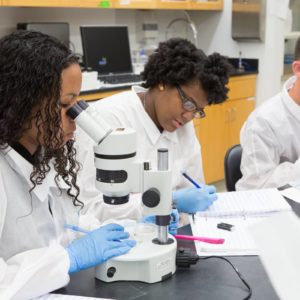As I began choosing my courses for next semester, I knew I had to take CBE core lab, as this is a requirement for the concentration during the spring semester of junior year. In addition, I was really excited about conducting independent work in a new bioengineering lab, which I am hoping will be the lab that I stay in for my senior thesis. With both 7 hours of core lab per week and an expectation of 20 hours of independent work per week, I know I will be spending a lot of time in the lab next semester, so I have started to prepare for that. If you are also taking core lab while doing independent work, or if you are enrolled in multiple lab-courses, such as chemistry, molecular biology and physics at the same time, you will likely need to plan ahead. In this post, I will offer tips on how to prepare for a lab-heavy semester:




